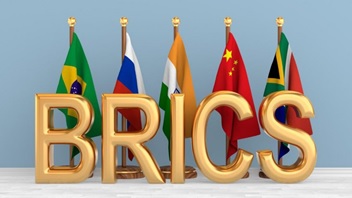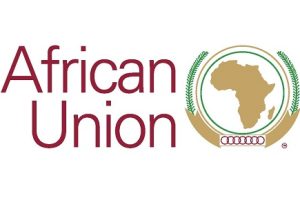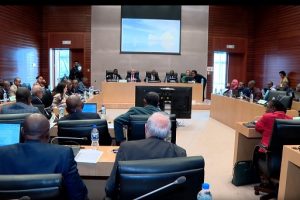
The 15th (Brazil, Russia, India, China, and South Africa) BRICS Summit, held in Johannesburg, South Africa, passed different decisions. Accepting the membership proposals of an additional six countries is among the grand moves. The bloc is now becoming an influential political and economic actor with 11 member countries. Also, the union accounts for around 47% of the world population living in strategic geopolitical places. According to some studies, the BRICS have over 29% of global GDP among their new members.
The grand issue that was passed on the closing day of the summit was the invitation of the six countries to the bloc. The invitees will be official members of the bloc as of January 1, 2024. Ethiopia is one of them. The country’s human and natural resources may be a big plus to the bloc. Moreover, as a geopolitically strategic country and diplomatic center of the continent, Ethiopia’s accession is a great opportunity for the bloc. The country’s growing economy, and rich history coupled with a big population may be cited as reasons for the country’s inclusion in the bloc.
In an exclusive interview with The Ethiopian Herald, Dawit Mezgebe Tsegaye, a lecturer at Dila University and PhD candidate of African and Asian studies at Addis Ababa University emphasized the significance of Ethiopia’s membership of the bloc. He highlighted several reasons why Ethiopia was considered for being selected to be a new member of the influential bloc.
Ethiopia’s historical importance and rich history make the country a preferred choice as far as Africa is concerned. Additionally, the country’s demographic status as the second most populous country in Africa, and its place as a capital city of the continent and other regional, continental, and international organizations qualify the country as the best candidate to join the alliance.
Dawit argued that Ethiopia’s political economy and historical significance are vital factors for the BRICS countries to consider the former as a new member. The country’s pivotal role in international relations and diplomacy further serves as an additional reason for the selection. He emphasized that the country’s 120 million people is a big market opportunity for the BRICS.
In his speech, he highlighted the importance of the BRICS New Development Bank, which he identified as the turning point in the bloc’s history the uniqueness of this bank, contrasting it with institutions like the World Bank and IMF. The BRICS New Development Bank has an initial capital of over 100 billion USD and is free from conditionalities and the influence of the West. The blocs’ approach is more democratic and liberal, allowing member countries to make choices aligned with their own interests.
He further discussed the advantages Ethiopia could gain from BRICS membership and said that joining the bloc would help avoid unwanted and unjust interventions. The suitability of making exchanges based on the amount of commodities produced eliminates the need to rely on distant institutions like the export-import banks in the United States, he added.
He also argued that BRICS membership would provide Ethiopia with a mutually beneficial relationship based on shared interests and goals, rather than a patron-client one. Unlike some other countries, the BRICS do not interfere in the internal affairs of member states.
Also, having a BRICS liaison office in Addis Ababa would provide employment opportunities, boost the job market, and contribute to image-building for Ethiopia, he added. He viewed Ethiopia’s membership in the BRICS as a significant milestone in the country’s history and sent a message to both Africa and the West about Ethiopia’s growing importance.
Moreover, Dawit pointed out that the BRICS nations could provide an alternative source of support. He mentioned that the BRICS New Development Bank, which operates with a substantial initial capital of over $100 billion, can serve as a potential to provide financial assistance to Ethiopia without the conditionalities often associated with other financial institutions.
He discussed the advantages of establishing direct relationships with BRICS countries citing examples of China’s significant investments in Ethiopia, including billions of dollars in various sectors. He also said that the country can benefit from technological advancements and military cooperation with BRICS nations.
Moreover, Dawit emphasized that Ethiopia’s membership in the BRICS also aligns with the bloc’s efforts to diversify diplomatic relations. By engaging with both the BRICS and Western countries, Ethiopia can leverage its position to extract the best possible outcomes for its national interests. Balancing relations between the East and the West allows Ethiopia to maintain its autonomy and maximize economic and strategic advantages from both sides. He stressed the need for astute leadership and strategic planning to minimize Ethiopia’s reliance on Western debt and explore financing mechanisms from the East.
For his part, Surafel Getahun, a researcher and Political Science and International Relations lecturer at Dire Dawa University said that Ethiopia’s vital contributions to pan-Africanism and its diplomatic clout might have boosted its accessation to the bloc. Additionally, the country’s grand role in the East African region and Africa as a whole, and its key place in the global arena have played into its selection. Ethiopia’s longstanding positive relations with the founding members of the bloc underscore the country’s alignment with their interests, facilitating its inclusion.
The country must manage its relations with different countries and coalitions and follow a balanced approach. Ethiopia should view the bloc as an alternative economic coalition, he advised. He also asserted that the presence of BRICS will prompt financial institutions like the IMF and the World Bank to explore avenues for improving their operations, ultimately benefiting Ethiopia and other member countries.
Overall Ethiopia’s potential membership in the BRICS holds several advantages for the country. One significant benefit is the economic opportunities it presents. The BRICS countries, collectively representing a large portion of the global economy, have substantial financial resources and investment potential. Joining the BRICS could provide Ethiopia with access to funding for infrastructure projects, such as transportation, energy, and telecommunications, which are crucial for the country’s development.
Moreover, membership in the BRICS could help Ethiopia address its debt burden and dollar-related issues. The BRICS nations, especially China and Russia, have shown a willingness to provide debt relief and alternative financing options to African countries. Ethiopia could leverage its membership to renegotiate its debt terms and explore new avenues for financing its projects. Also, the country’s first admission shows how the country is continuing its beacon for Africa.
BY EYUEL KIFLU
THE ETHIOPIAN HERALD WEDNESDAY 30 AUGUST 2023





